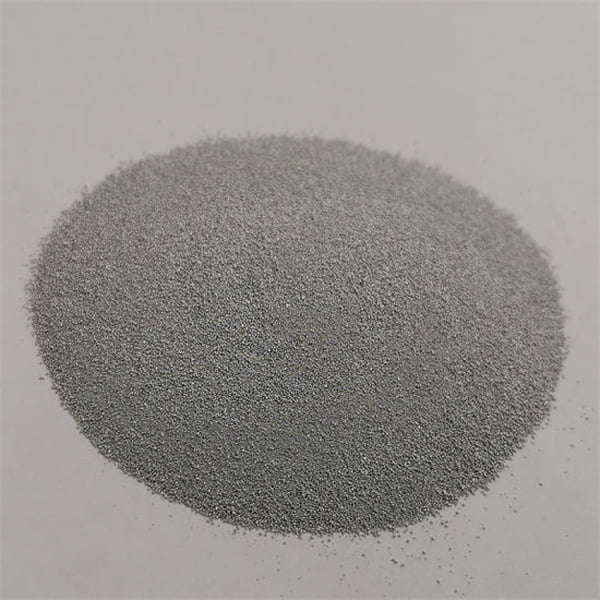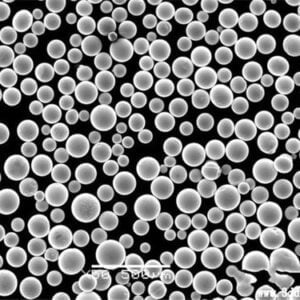Ti48Al2Cr2Nb-pulver
Ti48Al2Cr2Nb-pulver är en anmärkningsvärd legering som har fått betydande uppmärksamhet de senaste åren på grund av dess exceptionella egenskaper och applikationer i olika branscher. Den här artikeln utforskar sammansättningen, syntesmetoderna, egenskaperna och olika tillämpningar av Ti48Al2Cr2Nb-pulver. Från flyg- och rymdteknik till biomedicinska framsteg har denna legering potential att revolutionera flera områden. Låt oss dyka in i den fascinerande världen av Ti48Al2Cr2Nb-pulver och avslöja dess omfattande möjligheter.
Låg MOQ
Tillhandahålla låg minsta orderkvantitet för att möta olika behov.
OEM & ODM
Tillhandahålla kundanpassade produkter och designtjänster för att tillgodose unika kundbehov.
Tillräckligt lager
Säkerställa snabb orderhantering och tillhandahålla tillförlitlig och effektiv service.
Kundtillfredsställelse
Tillhandahålla högkvalitativa produkter med kundnöjdhet i fokus.
dela denna produkt
Innehållsförteckning
1. Inledning
Ti48Al2Cr2Nb powder belongs to a class of advanced intermetallic alloys that exhibit outstanding properties such as high strength, excellent oxidation resistance, and superior corrosion resistance. This alloy is primarily composed of titanium (Ti), aluminum (Al), chromium (Cr), and niobium (Nb), which synergistically contribute to its remarkable characteristics. Its unique combination of properties makes it an attractive material for numerous applications.
2. Composition And Structure Of Ti48Al2Cr2Nb Powder
Ti48Al2Cr2Nb powder consists of 48% titanium, 2% aluminum, 2% chromium, and 2% niobium. These elements are carefully selected to achieve a balanced composition that imparts desirable mechanical and thermal properties to the alloy. The microstructure of Ti48Al2Cr2Nb powder typically comprises a fine-grained lamellar structure, enhancing its mechanical strength and ductility.
3. Synthesis Methods
Several techniques are employed for the synthesis of Ti48Al2Cr2Nb powder, including gas atomization, mechanical alloying, and powder metallurgy processes. Gas atomization involves the rapid solidification of a molten alloy by subjecting it to a high-velocity gas stream, resulting in the formation of spherical powder particles. Mechanical alloying combines elemental powders through high-energy ball milling, promoting alloying and homogenization. Powder metallurgy techniques involve compaction and sintering of elemental powders to form a dense and uniform material.

4. Mechanical Properties
Ti48Al2Cr2Nb powder exhibits exceptional mechanical properties, making it suitable for demanding applications. It demonstrates high tensile strength, excellent fatigue resistance, and impressive creep resistance at elevated temperatures. The alloy also possesses good fracture toughness and maintains its mechanical integrity under severe loading conditions.
5. High-Temperature Performance
One of the key advantages of Ti48Al2Cr2Nb powder is its exceptional high-temperature performance. The alloy retains its mechanical strength and dimensional stability even at elevated temperatures, making it ideal for applications in gas turbines, jet engines, and other high-temperature environments. Its resistance to oxidation and thermal fatigue ensures prolonged service life under extreme conditions.
6. Aerospace Applications
Ti48Al2Cr2Nb powder has garnered considerable interest in the aerospace industry. Its lightweight nature, high specific strength, and excellent heat resistance make it a viable material for aircraft components. From turbine blades to engine casings, this alloy offers enhanced fuel efficiency, increased durability, and improved performance in aerospace applications.
7. Biomedical Applications
In recent years, Ti48Al2Cr2Nb powder has found promising applications in the biomedical field. The alloy’s biocompatibility, corrosion resistance, and low elastic modulus make it an attractive choice for orthopedic implants, dental prosthetics, and surgical instruments. Its ability to integrate with human tissues and promote faster healing has propelled its use in advanced medical procedures.
8. Automotive Industry
Ti48Al2Cr2Nb powder is also gaining traction in the automotive industry. Its lightweight properties contribute to fuel efficiency, reducing emissions and enhancing overall vehicle performance. The alloy’s strength and corrosion resistance make it suitable for engine components, exhaust systems, and other critical automotive parts.
9. Energy Sector
With the growing demand for clean energy, Ti48Al2Cr2Nb powder offers exciting prospects in the energy sector. Its excellent thermal stability, resistance to corrosive environments, and high-temperature capabilities make it an ideal material for gas turbines, power plants, and renewable energy systems. The alloy’s efficiency and reliability contribute to the advancement of sustainable energy technologies.
10. Future Outlook And Research Directions
The potential of Ti48Al2Cr2Nb powder continues to expand, with ongoing research focusing on improving its properties and exploring novel applications. Further advancements in alloy design, processing techniques, and surface engineering can unlock new opportunities for this remarkable material. Continued collaboration between researchers, engineers, and industry professionals will drive the innovation and commercialization of Ti48Al2Cr2Nb powder.
11. Conclusion
Ti48Al2Cr2Nb powder represents a significant advancement in alloy technology. Its unique composition, exceptional mechanical properties, and wide-ranging applications make it a highly sought-after material in various industries. From aerospace engineering and biomedical advancements to automotive and energy sectors, this alloy offers unprecedented possibilities. As research and development continue, Ti48Al2Cr2Nb powder is poised to reshape the future of material science and engineering.
Vanliga frågor
Q1: Can Ti48Al2Cr2Nb powder be used in additive manufacturing? Yes, Ti48Al2Cr2Nb powder can be used in additive manufacturing processes such as selective laser melting (SLM) or electron beam melting (EBM). These techniques enable the production of complex geometries and customized components with the alloy.
Q2: Is Ti48Al2Cr2Nb powder resistant to corrosion? Yes, Ti48Al2Cr2Nb powder exhibits excellent corrosion resistance due to the protective oxide layer that forms on its surface. This property makes it suitable for applications in corrosive environments.
Q3: What are the advantages of using Ti48Al2Cr2Nb powder in gas turbines? Ti48Al2Cr2Nb powder offers high-temperature performance, excellent oxidation resistance, and superior mechanical strength, making it an ideal material for gas turbine components. It contributes to improved efficiency, reduced weight, and enhanced durability of gas turbines.
Q4: Are there any challenges associated with the processing of Ti48Al2Cr2Nb powder? The processing of Ti48Al2Cr2Nb powder can be challenging due to its intermetallic nature and susceptibility to embrittlement at high temperatures. Careful control of processing parameters and optimization of heat treatments are crucial to obtain the desired microstructure and properties.
Q5: How does Ti48Al2Cr2Nb powder compare to other titanium alloys? Ti48Al2Cr2Nb powder exhibits unique characteristics such as high strength, excellent oxidation resistance, and superior corrosion resistance, which set it apart from other titanium alloys. Its specific composition and microstructure make it well-suited for specific applications where these properties are crucial.
Få det senaste priset
Om Xmetto
Produktkategori
HOT SALE
KONTAKTA OSS
Har du några frågor? Skicka oss meddelande nu! Vi kommer att betjäna din begäran med ett helt team efter att ha fått ditt meddelande.








